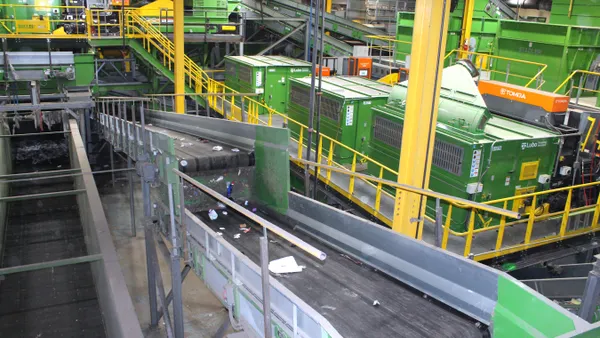Dive Brief:
- The York Daily Record reported that Manchester, PA-based Penn Waste has fielded an all-time high volume of hypodermic needles, lancets, and other sharps coming through its stream, with the most ever number of sharps coming through this past February.
- Medical facilities have not been the source of the improperly disposed waste; rather it is usually dumped by consumers with medical conditions, such as insulin-dependent diabetes, who regularly inject medications and or use lancets to monitor their blood glucose.
- Penn Waste is instructing the community it serves on proper disposal and has contacted York Heroin Task Force to get the word out to illegal drug users.
Dive Insight:
The increase in these hazardous medical waste products is not a complete mystery. The company recently expanded its recycling services, and is now receiving recyclables from other haulers. The company credits the issue to a lack of knowledge on how to dispose of sharps, including knowing to recycle plastic containers, then put those containers in the garbage rather than recycling bins. However, even when containers make it to the recycling center, there are potential consequences to human health as well as more work and expense for the center.
The medical waste does not come to the facility presorted, so workers sort by hand, and gloves provide limited protection from needle jabs and potential to contract bloodborne diseases.
"We have had employees in the past who have gotten stuck with a needle," said Amanda Davidson, a spokeswoman for the company, to the York Daily Record. "It's a scary situation."
The center also has to call out a biohazard company to pick up the waste.
Meanwhile, environmentalists have been pushing for regulations to ensure safe disposal of drugs and medical supplies. When it comes specifically to waste in the form of medications, Massachusetts just became the first state to require pharmaceutical companies to offer a take back program to amp up disposal safety measures.









